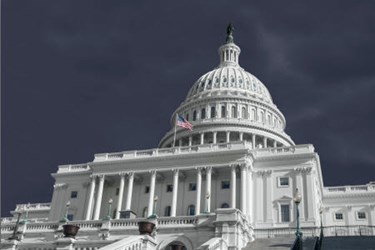Senate Wavers On Repealing Device Tax, ACA Without Replacement

Support for a swift repeal of the Affordable Care Act (ACA) is wavering in the U.S. Senate, as many express concerns that a full repeal should be delayed until a replacement plan is fully-realized and a funding strategy is in place. Industry advocacy groups argue that an immediate repeal of the device excise tax — which funds a portion of the ACA — is necessary to continue job creation and the R&D investment made possible by the suspension of the tax in 2015.
The medical device excise tax is a 2.3 percent tax levied against the sale price of medical devices. According the current White House administration, the tax pays for itself by expanding coverage and increasing overall sales, but industry advocates and stakeholders have been working steadily to repeal the tax, reporting that it places undue burden on the device industry and suppresses jobs and innovation. Congress voted to suspend the tax for two years in December of 2015.
Now that there is a new administration entering the White House and Republicans are poised to take control of Congress, the majority party leadership has moved to make the repeal of the ACA and associated taxes a priority. The House of Representatives currently is considering a bill that would permanently repeal the device tax. Senate Majority Leader Mitch McConnell stated that a vote to repeal the ACA in its entirety will happen within a few days, according to Reuters.
Congressional support to delay the repeal of both the ACA and its associated taxes is growing, reported Bloomberg. At least four Republican senators expressed concerns that a tax repeal may be premature, and that Congress should wait until a revenue plan is established to fund an alternative law.
Despite large support for a repeal of ACA, voters favor keeping large portions of the law intact, according to a recent survey conducted by Morning Consult and published by Politico. Furthermore, 61 percent of voters say the ACA “should not be repealed until there is a new plan for replacing the law,” and 37 percent of respondents favored keeping the device tax.
Industry groups AdvaMed and the Medical Device Manufacturers Association both released statements this week supporting the immediate repeal of the device tax, and both statements included survey findings showing that the industry has expanded jobs and R&D efforts under the temporary suspension.
Without a full-repeal, “continued uncertainty” is stifling the medical device economy, stated AdvaMed President and CEO Scott Whitaker, adding that an AdvaMed survey shows 83 percent of medical device companies avoided R&D cuts and 73 percent avoiding reducing employment following the tax suspension.
“It is not enough to delay or further suspend this disruptive tax, even if for a longer period of time. It simply does not give the industry the certainty and confidence it needs to make these critical long-term R&D investments,” said Whitaker.
According to a survey conduted by MDMA, R&D investment increased by an average 19 percent and 73 percent of med tech CEOs reported an improved capital funding climate and increased hiring.
“Medical technology innovators have boosted patient care and spurred job creation as a result of the device tax suspension, and we need to make sure this punitive policy is fully repealed once and for all,” said Paul LaViolette, executive chairman for CardioFocus and chairman of MDMA.
